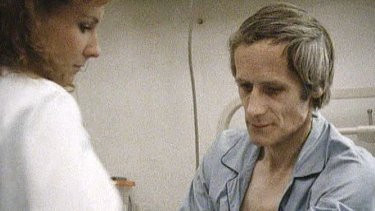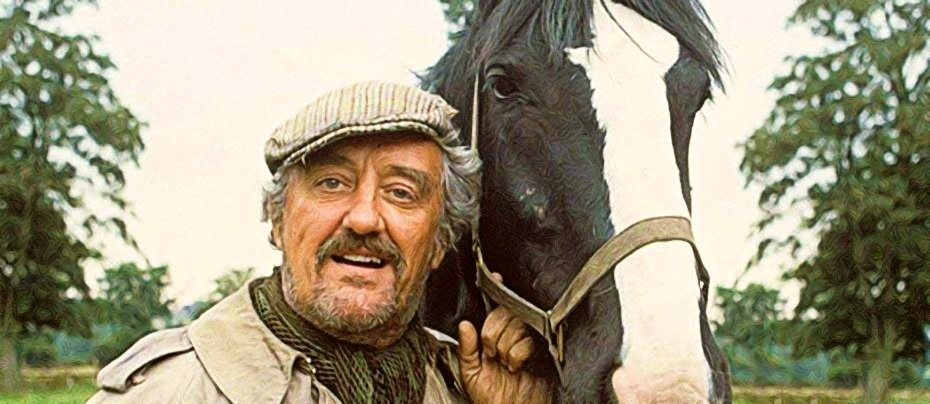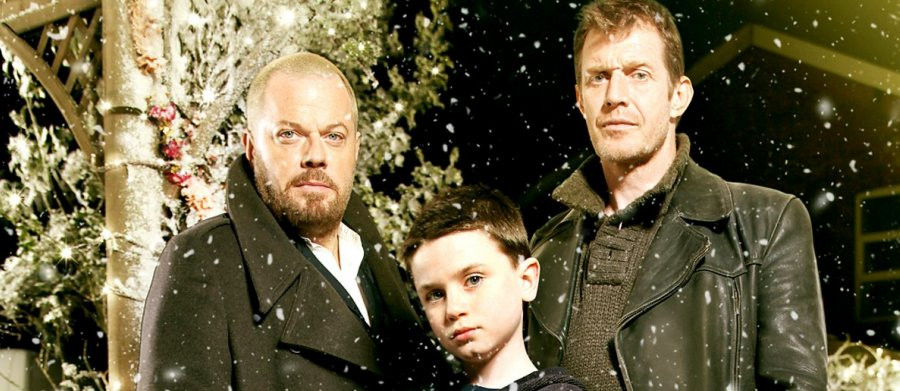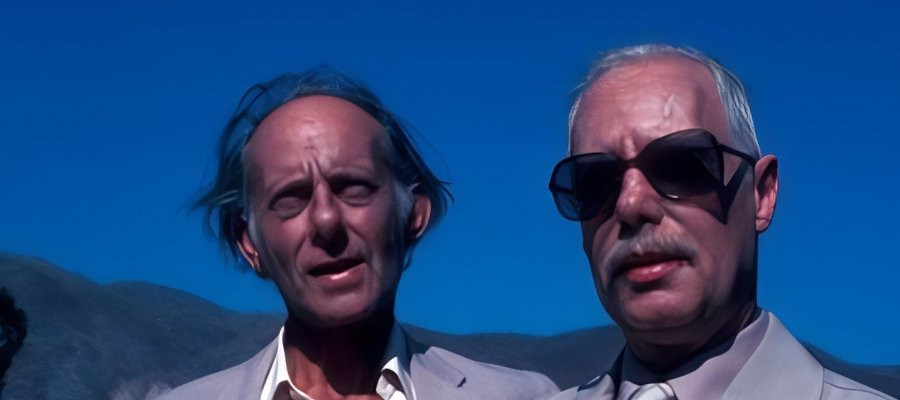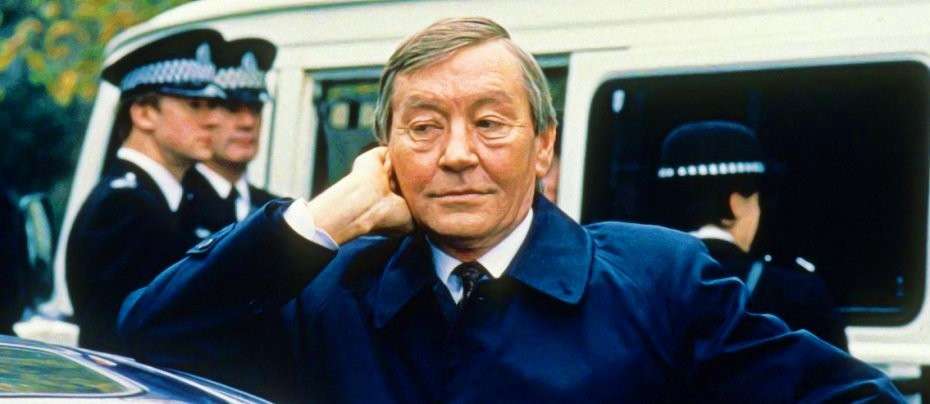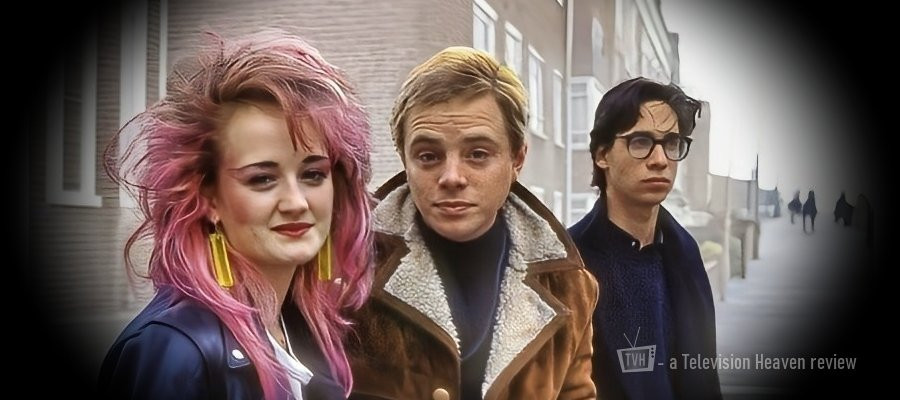
Johnny Jarvis
1983 - United KingdomA Powerful, Overlooked Portrait of a Lost Generation
First broadcast in 1983, Johnny Jarvis is one of British television’s most quietly devastating dramas — a gritty, moving portrait of youth on the margins, growing up in a country that seems to have no place for them. Adapted by Nigel Williams from his own novel and directed by Alan Dossor, the six-part BBC series is now rightly recognised as a time capsule of Thatcher-era Britain and the disillusionment it bred.
Set between 1977 and 1983, Johnny Jarvis traces the friendship between two mismatched teenagers, the lively, cocky Johnny Jarvis and the awkward, introspective Alan Lipton, as they leave secondary school full of dreams, only to crash into the harsh reality of mass youth unemployment, broken families, and urban decay. While the show is named after Johnny, it's Alan's eyes through which we see this bleak journey unfold.
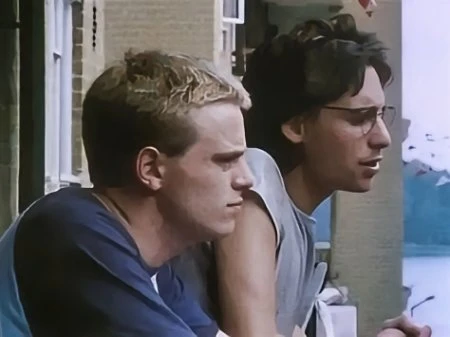
At school in Hackney, Jarvis is the loudmouth, the class clown who seems destined for something — anything — better. Lipton, by contrast, is a nervous loner with a father he’s never known and a mind preoccupied with the future. Their friendship, unlikely but sincere, forms the emotional spine of the series. But life after school quickly exposes their vulnerabilities. The optimism of youth curdles into disillusionment: Jarvis slides into poverty and isolation, while Lipton transforms into an aloof New Wave musician, drawing fame from the very misery his friend endures.
The reversal of fortunes is stark and effective — and cruel. The show doesn’t shy away from its central thesis: that a whole generation of working-class youth was failed by the system. The message, a barely disguised condemnation of Thatcherite Britain, remains painfully relevant. Jarvis’s decline, and Lipton’s moral ambiguity in turning that pain into lyrics for his band New Wastrels, speak volumes about ambition, betrayal, and survival.
Threaded through the main narrative are grimly authentic subplots: Jamie Foreman’s menacing skinhead Manning and Alrick Riley’s Paul Turner anchor a subplot about racial tension and violence that mirrors the unrest of early-80s inner cities. A surreal, noir-like storyline involving “The Colonel”, a sinister drug dealer holding Lipton hostage in his mother’s tower-block flat, offers a heightened, almost hallucinatory glimpse into urban desperation.
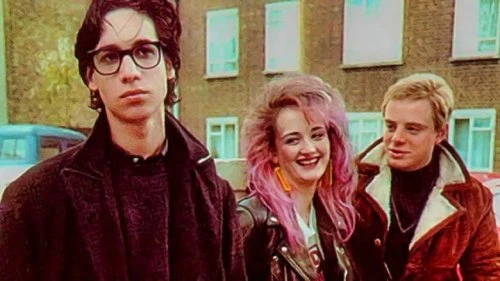
Despite its sometimes uneven tone — swerving from social realism to thriller-like stylisation — Johnny Jarvis is full of raw, unvarnished performances. The late Mark Farmer (Grange Hill), who died at the age of 53, is especially strong, portraying Jarvis’s descent with a quiet vulnerability beneath the bravado. Ian Sears manages to keep Lipton sympathetic even as his ego grows. Johanna Hargreaves adds complexity as Stella, the purple-haired love interest of both boys, while Maurice Colbourne gives a memorable turn as Alan’s estranged father.
John Altman’s evocative music and Gary Shail’s original songs lend the show an emotional depth, mixing despair and defiance in equal measure. The title theme is especially haunting — a lament for lost potential.
Long rumoured to have been wiped from the BBC archives, Johnny Jarvis finally received a DVD release in 2017, much to the relief of fans and critics alike. It's a series that deserves far more recognition than it’s had. Raw, emotionally rich, and often heartbreakingly prescient, Johnny Jarvis captures the crushed hopes of a generation and the brutal reality of growing up when your future has been written off before it’s begun.
Rating: ★★★★★
A forgotten gem of British drama — urgent, poetic, and painfully real.
Seen this show? How do you rate it?
Seen this show? How do you rate it?
Published on July 27th, 2025. Written by Laurence Marcus for Television Heaven.


